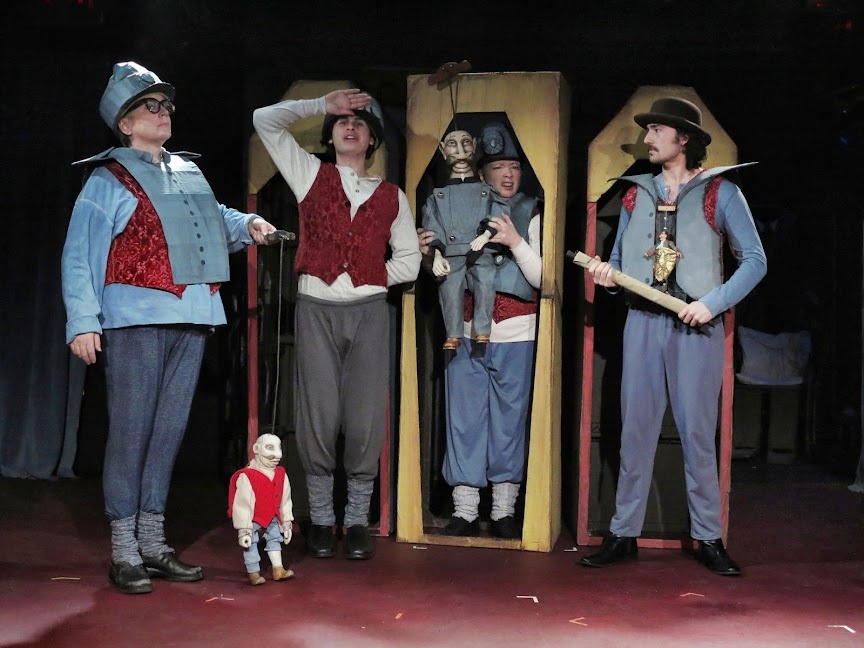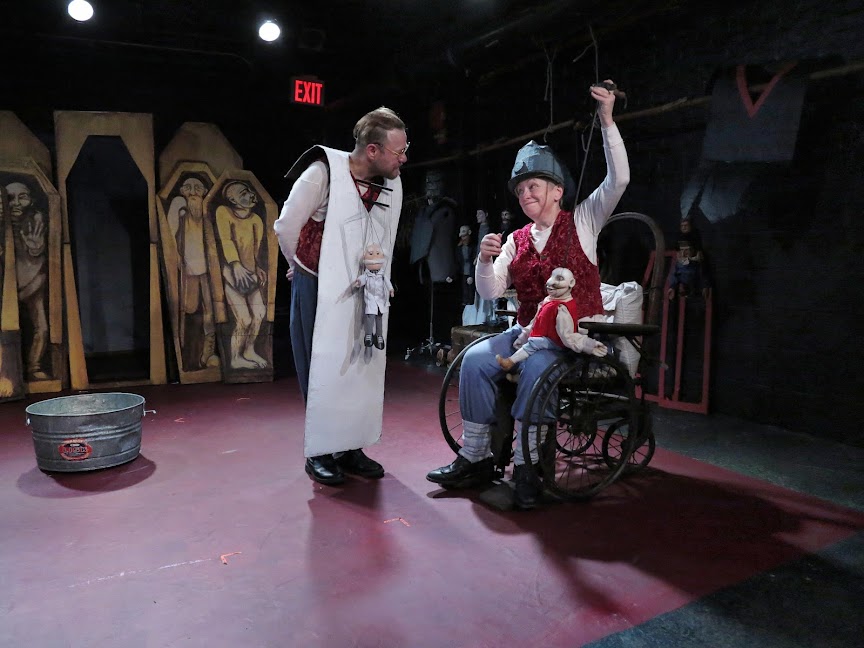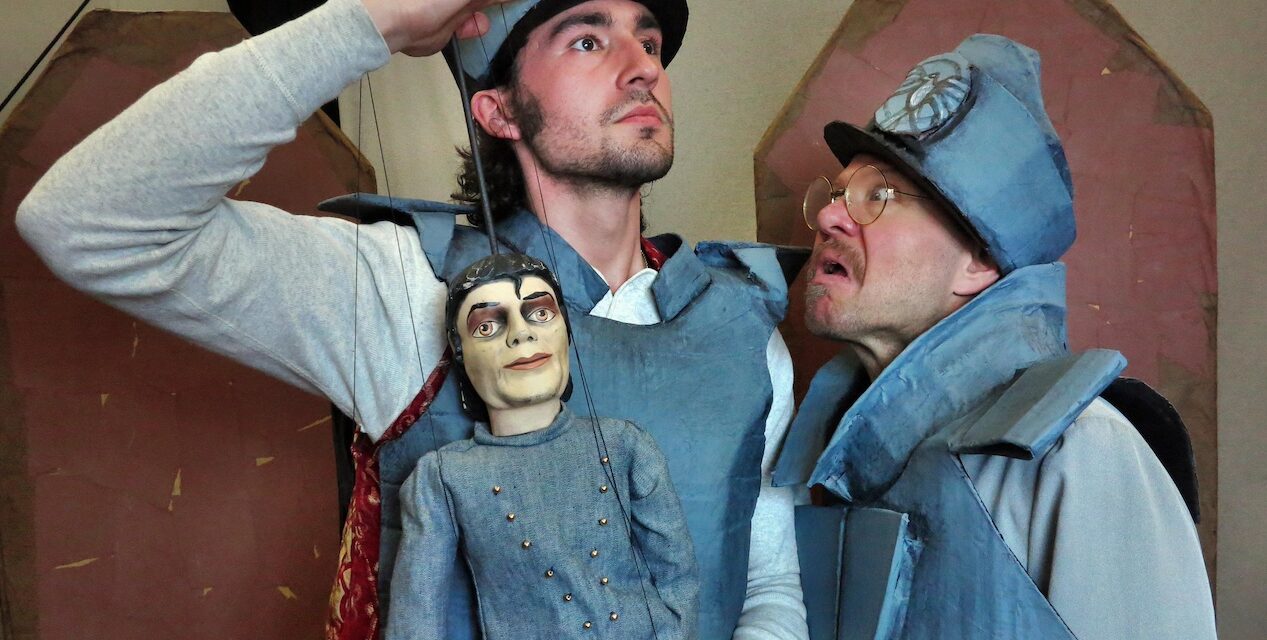Theater Review by Michael Dale . . . .
It was around this time last year when I first took in a performance by The Czechoslovak-American Marionette Theatre, a New York-based company that has been performing internationally since 1990, when founder Vít Hořejš discovered sixteen antique Czech puppets stored at the Jan Hus Church.
I was quite charmed by the combination of whimsey and smart protest theater they brought to La MaMa with Horejš’ adaptation of Vaclav Havel’s Audience, based on the famed censored playwright’s experiences enduring workplace surveillance.
With The Good Soldier Švejk and His Fortunes in the First World War, also adapted and directed by Horejš, the company has brought another work of a countryman to the stage in a boisterous mounting at Theater For The New City’s Cabaret Theater.

Novelist Jaroslav Hašek, who served on the front lines during World War I, completed only three of an intended six-volume series of his anti-war satire before passing in 1923, but it is nevertheless regarded as a classic of Czech culture. Its major theme, of questioning what defines insanity when it comes to the systematic slaughter of countless soldiers, has been echoed in later works such as Joseph Heller’s Catch-22 and Richard Hooker’s MASH.
Hořejš, who is a member of the acting ensemble, begins the play with a prologue wherein he and company members Michelle Beshaw, Deborah Beshaw-Farrell, Theresa Linnihan, Sammy Rivas, Rocco George, Gage Morgan and Ben Watts debate who should have the honor of puppeteering the title character, Josef Švejk, a dog thief who proudly carries the distinction of being “a certified idiot.” It’s decided they will all take turns at the role, emphasizing the character’s every-person status.
“I am completely fit and ready to serve as cannon fodder,” Švejk declares after learning of the assassination of Archduke Ferdinand, triggering some of the bloodiest warfare the world has ever seen.
But first, a visit to the pub, where his nonsensical political opinions lead to an arrest and conviction. When later asked what his crime was, Švejk answers, “I don’t know, but I signed a full confession.”
The episodic story chronicles our hero’s patriotic attempts to join his fellow soldiers fighting on the front lines, but being detoured by stints in jail, a psychiatric hospital, and less-dangerous military assignments. As is usually the case in such tales, the authority figures are presented as more nonsensical than those regarded as insane.


Designer Theresa Linnihan provides much coffin-like imagery in the set and costumes, contrasting with Horejš’ actors playing much of the material as a wacky farce. So much so that for most of the show the humans upstage the puppets.
This is largely because the playing area is on the floor and the general admission seating rises at a low angle. Though my guest and I were reserved press seats in the second row (there is also floor seating on cushions up front) much of our view of the downstage area was blocked by those in front of us, so we often couldn’t see the marionettes when they were staged up close. We were able to move to better seats for the second act, and with a clearer view we could see that although some puppeteers brought lovely, lifelike movement to their marionettes, a noticeable number of puppets just stood motionless during their scenes.
The cast is energetic and charismatic, but I recall much more emphasis on puppetry in last year’s Vaclav Havel piece. But despite my reservations, the audience gave the company a rousing ovation during their bows and no doubt members of New York’s Czech community would be more appreciative of seeing a landmark work of their literary culture dramatized. And with tickets priced at only $18 ($15 for students, seniors and veterans), it’s the kind of affordably priced live theater that should be more abundant.
The Good Soldier Švejk and His Fortunes in the First World War. Through February 18 at Theater For The New City (155 First Avenue between East 9th and 10th Streets). Running time: two hours with one intermission. www.theaterforthenewcity.net
Photos: Jonathan Slaff


















